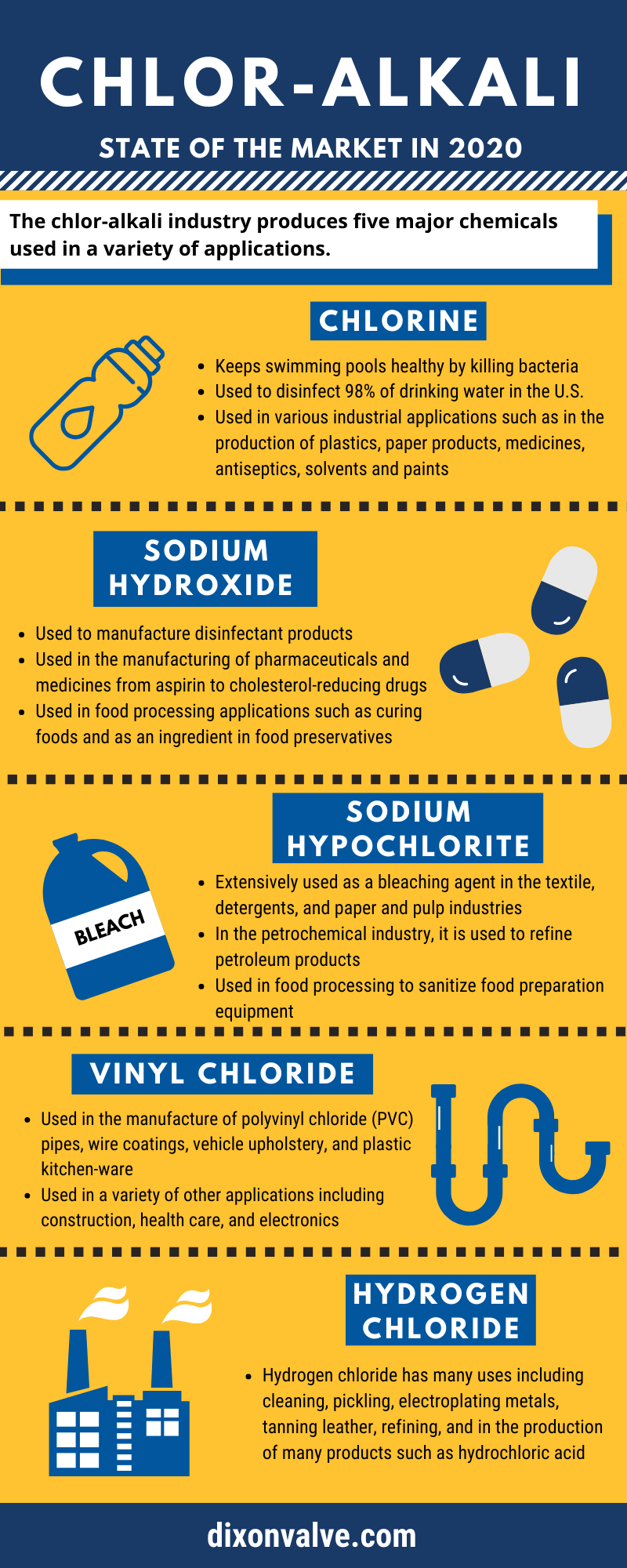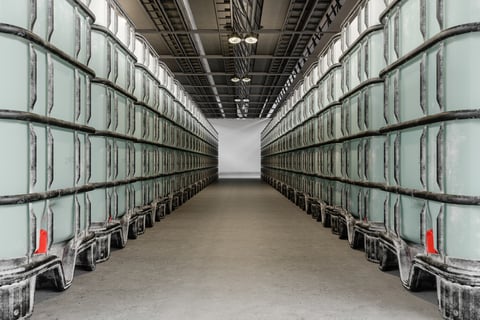The chlor-alkali industry is responsible for producing five major chemicals:
- Chlorine
- Sodium hydroxide and potassium hydroxide
- Sodium hypochlorite
- Vinyl chloride monomer
- Hydrogen chloride
Each of these products is included in the chloralkali market, with all five chemicals used in various applications across the country.
1. Chlorine
Chlorine, arguably the most readily known of the five, is best celebrated for keeping pools sanitary and healthy. More importantly, it is also used to clean 98% of drinking water in the United States.
2. Sodium hydroxide and potassium hydroxide
Sodium hydroxide and potassium hydroxide can be used interchangeably. The bulk of these chemicals are used to manufacture a wide range of items including detergent, aluminum products, and paper. Food-grade sodium hydroxide is used on German pretzels to give them a unique, crisp crust.
3. Sodium hypochlorite
Sodium hypochlorite, more commonly known as bleach, can be found under bathroom sinks around the world. Before being made available for purchase, sodium hypochlorite is diluted in a liquid solution, resulting in the pungent household cleaner found in a bottle of bleach.
4. Vinyl Chloride Monomer
Vinyl chloride, or sometimes vinyl chloride monomer, is not a final product. On its own, it is an unstable and hazardous material that would pose a serious health risk. Instead, it is converted from a vinyl chloride monomer to a vinyl chloride polymer, or polyvinyl chloride, more commonly known as PVC. PVC plastic is the third-most produced synthetic plastic, with roughly 40 million tons made every year.
5. Hydrogen chloride
Hydrogen chloride is made when hydrogen is combined with the pure chlorine gas that is produced
during the chlor-alkali process—a feat achieved when completing the reaction in the presence of a UV light. Most hydrogen chloride is used in the production of hydrochloric acid, an inorganic compound used in industrial processes.
Combined, these five chemicals are integral to a staggering amount of day-to-day life. Through the chlor-alkali process, we are provided with clean drinking water, paper, laundry detergent, bleach, PVC plastics, and various other products.
With all this at stake, it’s easy to see why the chloralkali market is one to watch.
This blog post was excerpted from the Chlor-Alkali: State of the Market 2020 whitepaper.
If you’d like to speak with a specialist about your application or questions, 

Sources:
- https://www.360marketupdates.com/global-chlor-alkali-market-13061339
- https://chlorine.americanchemistry.com/C2-Econ-Benefits/
- https://www.eurochlor.org/topics/energy/
- https://chlorine.americanchemistry.com/C2-Econ-Benefits/
- https://www.marketreportsworld.com/global-chlor-alkali-market-14406268
- https://www.eurochlor.org/about-us/
- https://www.chlorineinstitute.org/about-us/
- https://www.phmsa.dot.gov/sites/phmsa.dot.gov/files/docs/news/55526/study-nonpetroleumhazardous-liquids-transported-pipeline-july-13-2015.pdf
- https://www.chlorineinstitute.org/transportation/incident-statistics/
- https://www.ntsb.gov/news/press-releases/Pages/mr20190214.aspx
- https://thebossmagazine.com/performance-plastics-material-concern/
- http://theconversation.com/the-world-of-plastics-in-numbers-100291
- https://thebossmagazine.com/petrochemicals-oil-industry/
- https://www.environmentalintegrity.org/news/31-new-or-expanded-petrochemical-plants/
- https://www.prnewswire.com/news-releases/global-pvc-market-to-reach-value-of-49-5-billion-by-2023--says-beroe-inc-300942932.html
